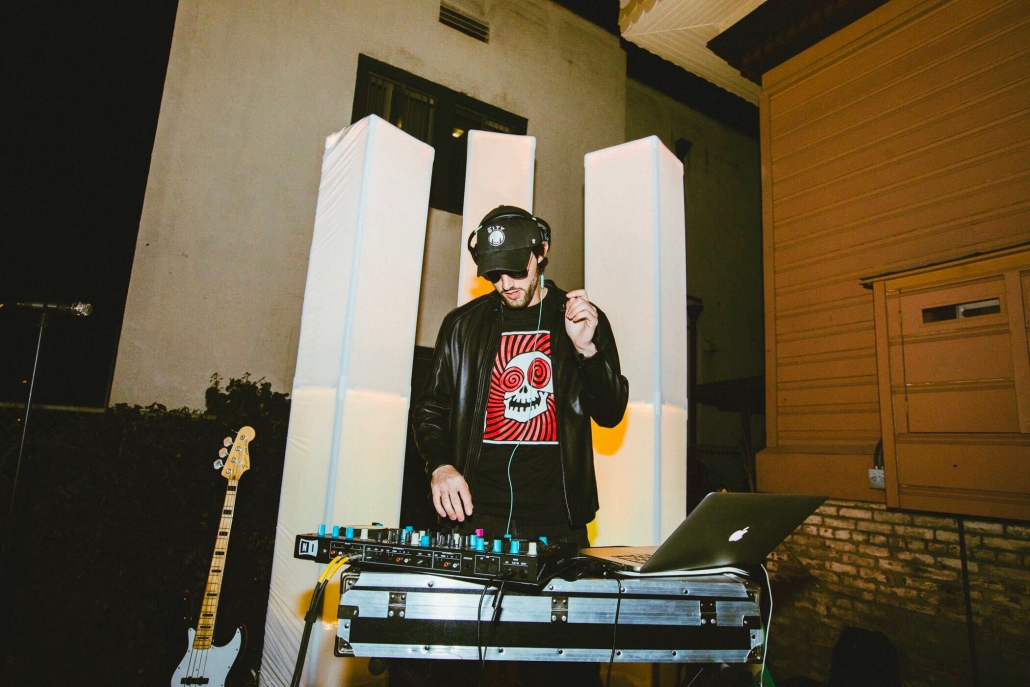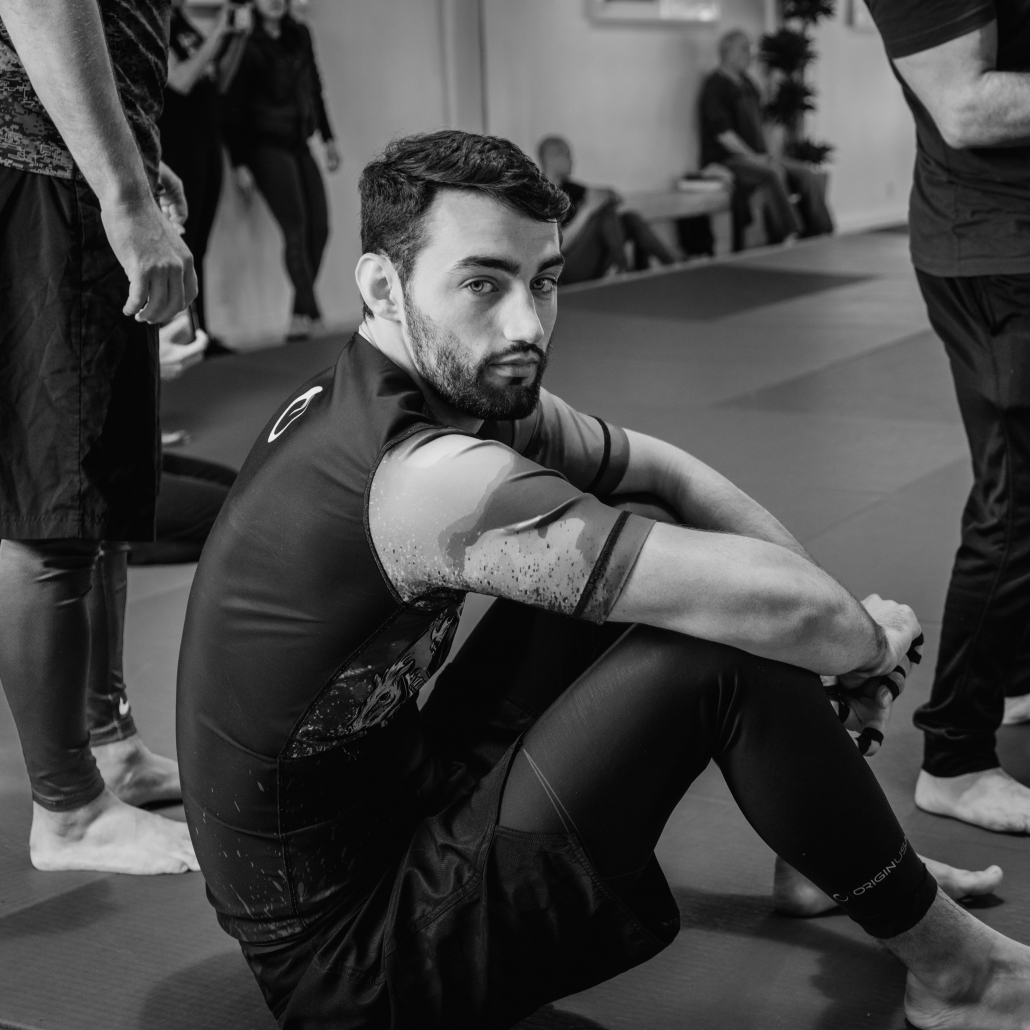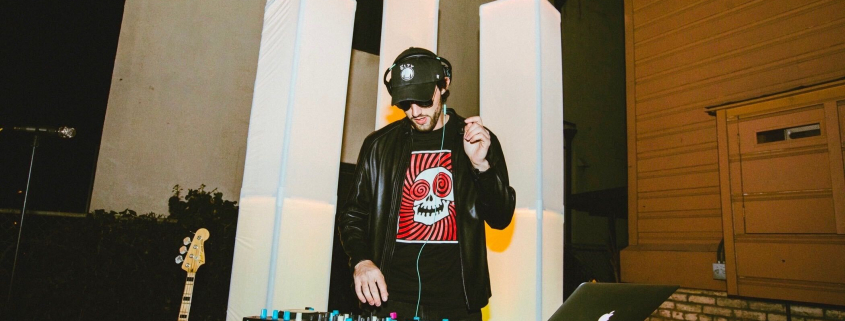EDM artist Jack Dugan embraces mindfulness

Harboring an ear for music and discipline for personal development, EDM artist and producer Jack Dugan practices a trifecta of mindfulness, music production and Brazillian jiu jitsu to propel his professional career and tackle adversity.
Conquering the piano and guitar at age seven, the 2020 Thornton School of Music graduate has always been musically inclined. While collaborating with his middle school rock band in his hometown of Bethesda, Md., he identified music as his method of communication and channel for self expression.
“[Through music], people were able to understand a part of me that I didn’t know how to express through words,” Dugan said, explaining his once shy, reserved personality.
Because he gravitated the most toward instrumental production, Dugan became hooked on creating EDM in high school.
He showcased his talent as a DJ at tailgates and frat parties at the University of Miami, where he attended before transferring to USC. At the time, Dugan also released a variety of electronic remixes and reboots. His most notable release came in 2016 when he won the Wavo remix competition for Steve James’ “Renaissance.” The remix was soon signed to Ultra Music, according to Dugan’s Spotify.
For Dugan, music has consistently served as a source of consolation, especially as he grew to question his place in the world and come to terms with his adoption. While he always held a sincere and loving relationship with his adoptive family, constantly contemplating the story behind his adoption led him to an anxious state.
“I felt lonely and frustrated about not knowing anything at all about my past,” Dugan said. “So I felt, more than anything, that I couldn’t fit in anywhere.”
Yet, his mindset drastically shifted when he discovered the practice of mindfulness at the age of 19. Dugan was inspired by successful music business entrepreneurs who recommended practicing introspection and cultivating mindfulness as mechanisms to make better business decisions. So he downloaded HeadSpace, an app designed to facilitate mindfulness through meditation.
Dugan also read “The Artist’s Way” by Julia Cameron, which motivated him to keep a daily journal — another tactic used to develop mindfulness and an activity Dugan encourages everyone to try.
“As I get better at understanding my emotions through journaling and meditation, I am better able to objectify my thoughts,” Dugan said. He argues that learning to perceive thoughts as objects has allowed him to separate himself from the emotions that once controlled him and prevented him from obtaining peace of mind.
He further argues that practicing mindfulness to achieve peace of mind is key to disassociating from negative thoughts that prohibit people from achieving their true potential, or their most authentic “selves.”

Dugan said that “people create their sense of self through filtering their past experiences and telling themselves stories about what they’ve been through.” He compares this tendency to “view life through a lens” to a “filter” that is used in music production to warp sound.
Just as a voice or instrument’s sound may be warped by a musical filter, he said the way we view the world may be contorted by the emotional filters created by our personal experiences. And just as the removal of a musical filter reveals raw sound, eliminating our emotional filters unveils our most authentic selves, allowing us to live up to our greatest individual potential.
For Dugan, the experience of adoption once shaped his perception of life through a single filter of angst and uncertainty. However, cultivating mindfulness through meditation and journaling has led him to interpret his adoption through new filters of motivation and appreciation.
He has grown to effectively articulate “an immense amount of gratitude” toward his adoptive family, as they have given him various opportunities he otherwise would not have had. He admits that this shift in perspective has motivated him to make the most of small things.
Dugan’s mindfulness practice was drastically amplified by adjunct professor of music industry Richard Wolf’s “Music and Mindfulness” course at USC. He confesses that Wolf’s class showed him how improving his meditation practice could make him a “better musician, more creative and happier.”
Since musicians naturally gravitate toward sound, anchoring their awareness in the noises of their surroundings allows them to better connect with the world and achieve a deeper meditative state.
“[Meditation] has given me a much greater sense of appreciation and allowed me to connect deeper with the world through my already developed sonic skills,” Dugan said.
Highlighting Dugan’s commitment to introspection in his meditative practice, Dugan’s longtime best friend Kyle Sonlin said that being mindful has allowed Dugan to “access a lot of the emotional drive it takes to be so creative.”
Following his yearning for peace of mind, Dugan channels physical energy into activities that promote mindfulness. As an avid practitioner of Brazilian Jiu Jitsu, he describes the martial art as “a great way to develop humility and detachment.”
As an artist, he said he believes that mindfulness practice may serve particularly beneficial while on tour.
“It’s pretty difficult to find time to recharge when you’re on a bus. And it’s really important to recharge because you give so much to the crowd every single night,” Dugan said.
In addition to holding private music production lessons via Zoom, Dugan is currently constructing a new artist project called Quinn Alexander — the name originally given to him by his birth mother.
Through Quinn Alexander, Dugan strives to capture an authentic story of his adoption. He emphasized that while Quinn Alexander would have been a completely different person — with different experiences, fears and aspirations from Jack Dugan — the two would have shared the same mind and consciousness.
The project intends to show that “there is something much more to the self than simply the experiences and stories we tell ourselves about our past,” Dugan said.
He plans to experiment with new orchestral sounds that contrast his previous work. The switch in music style highlights how Quinn Alexander would have held a completely different identity from Jack Dugan.
“The Quinn Alexander project reminds me of Porter Robinson not because the music sounds similar, but because it feels equally as emotionally driven [rather than] sales driven,” close friend and fellow artist Leah Silberman said.
The final product of the Quinn Alexander project, which he expects to release in 2021, will represent the most authentic, raw form of Jack Dugan. Producing Quinn Alexander will allow him to get in touch with a higher, purer form of his consciousness by expressing that the “self” is greater than the experiences that people so often assume shape it, he said.

